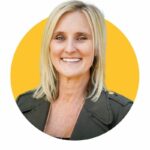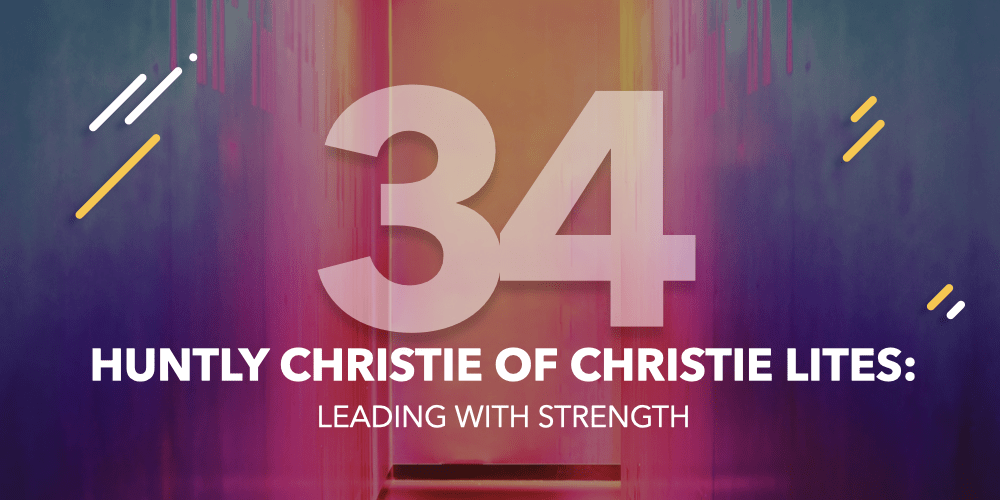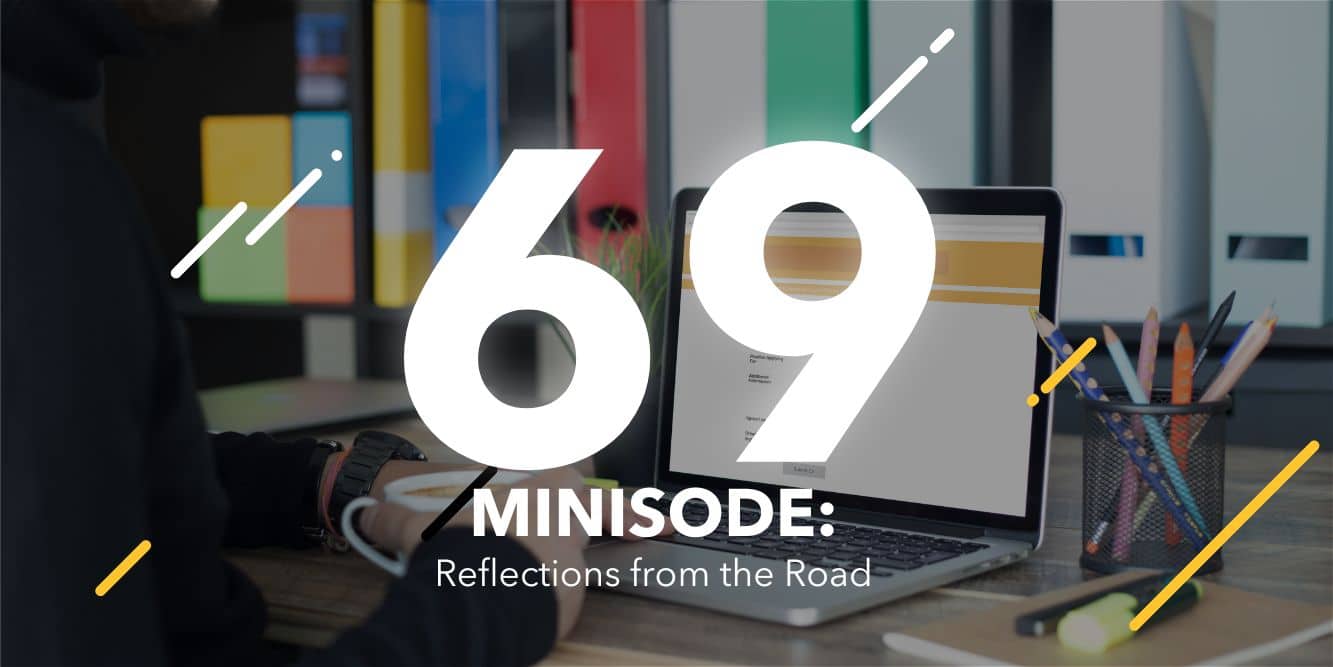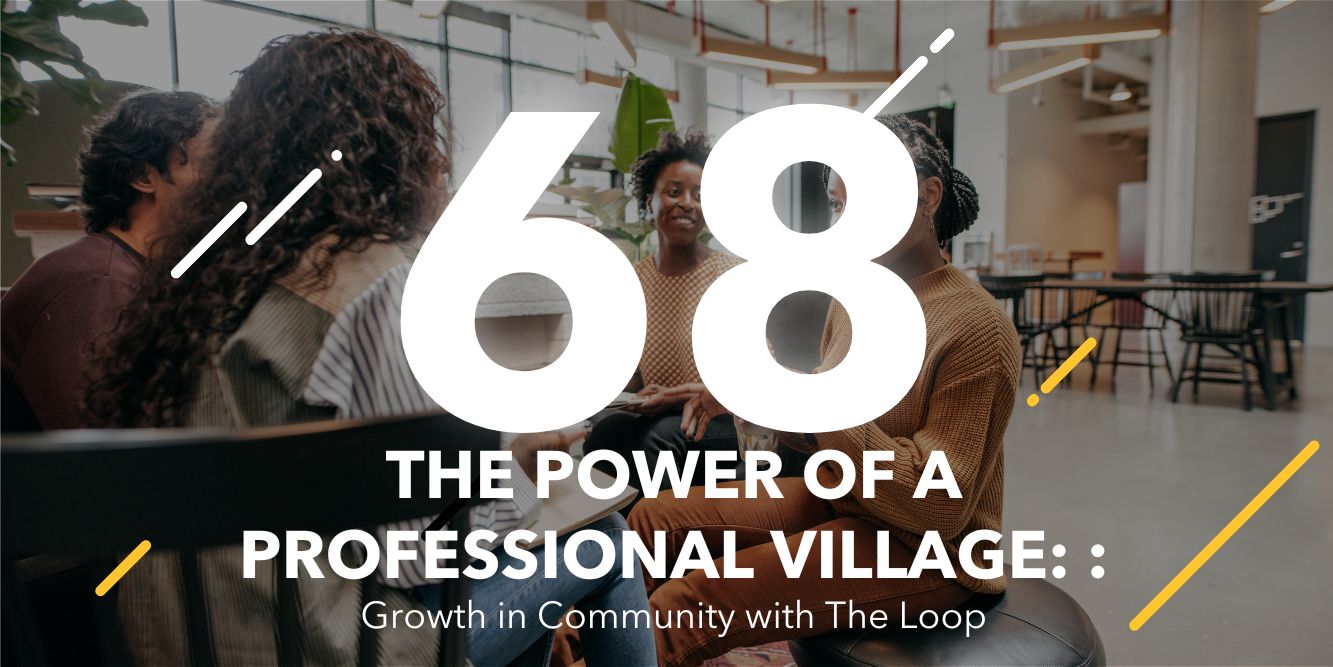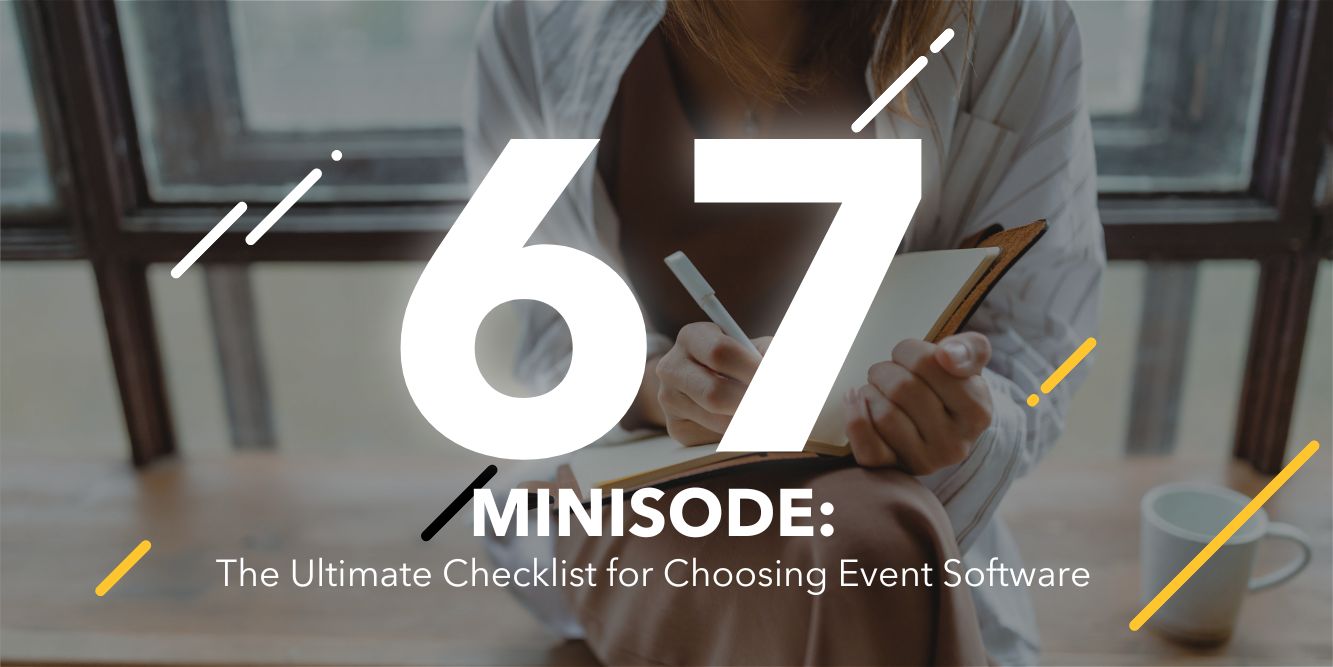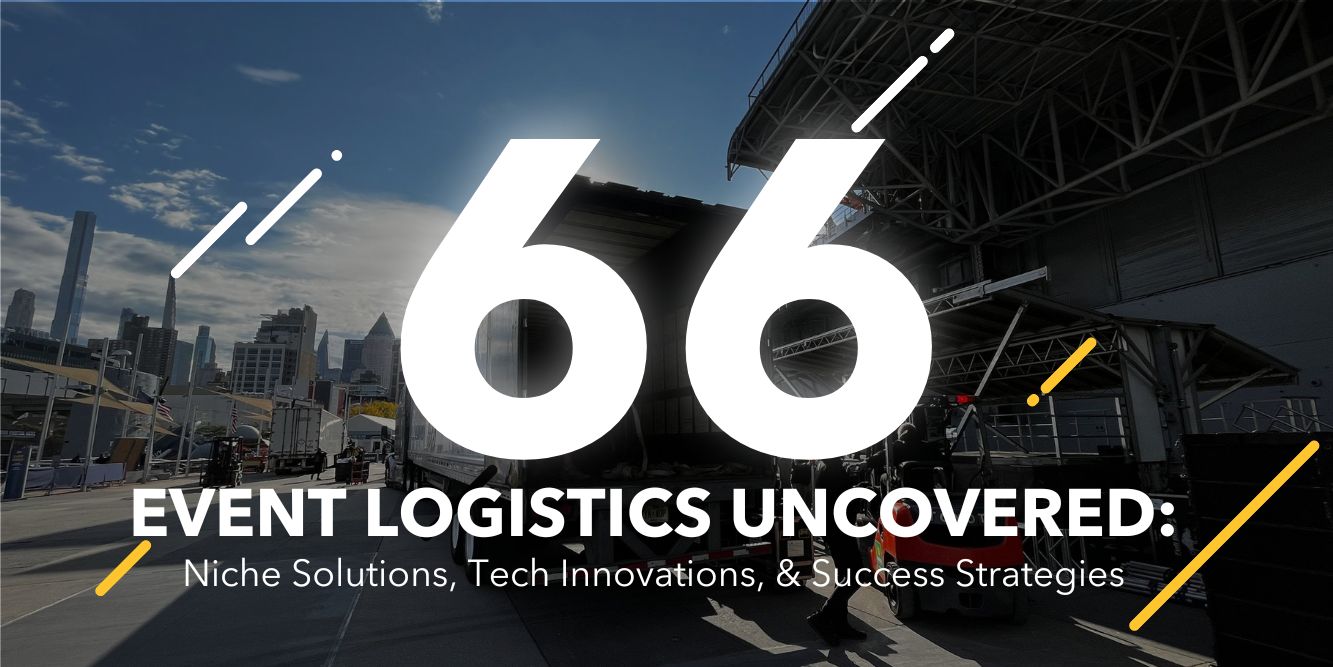Listen 🎧
Key Takeaways:
1. Be someone’s best opportunity.
Being the best opportunity for someone is more important than having the best technical skills. In today’s competitive job market, it’s crucial to showcase not just technical skills, but also soft skills and the ability to connect with clients. You need to be that company that the person you’re looking for is looking for.
2. Know who you are and remain focused.
Knowing who you are and remaining focused is key to success. It’s important to stay in your lane and avoid getting distracted by other opportunities that may not align with your goals.
3. Level up technical skills.
With the sophistication of lighting systems increasing, it’s important for show techs to keep up with the industry by continually leveling up their technical skills. We need to invest time and effort into staying up-to-date with the latest technologies to remain valuable and relevant in an ever-changing industry.
4. Don’t let the crowd be your leader.
Don’t let the crowd dictate your decisions. Ask yourself when you’re making decisions, am I following or am I leading?
Watch 📺
Read the Transcript 📚
[00:00:00] Angela Alea: Welcome to Corralling the Chaos Podcast, where we talk publicly about the things you’re worried about privately. My name is Angela Leia, and I’m your host. This is the event industry podcast for companies and crew where we’re gonna dive deep into things like, what does our industry need that it just doesn’t have?
[00:00:18] What are the things you wanna know, but you’re just too afraid to ask? And what are the biggest opportunities ahead for our. We’re gonna go deep and nothing is off limits.
[00:00:36] Welcome back to another episode of Corralling the Chaos. Today we have a very special guest with us, and I could not be more thrilled about having him on the. Huntly Christie is the CEO and founder of Christie Lites, a company he’s grown into a global mega player in event lighting. In his nearly 40 years in the industry, Huntly has become known [00:01:00] as a business operations and infrastructure expert.
[00:01:03] But what he enjoys most is building a highly effective team and delivering great results to his clients. So welcome, Huntly.
[00:01:10] Huntly Christie: Thanks Angela. That was a lovely intro. Much appreciated.
[00:01:13] Angela Alea: Thanks for being here. So tell, us a little bit about Christie Lites in case there’s anybody who’s listening who doesn’t know which would be odd.
[00:01:24] Everyone knows of Christie Lites, but tell us about Christie Lites and how did you get into the live events industry?
[00:01:30] Huntly Christie: I don’t think I’m unique in having been a, failed drummer who moved on to a different career path. And that’s my story. I love playing the drums in a band that introduced me to the, some of the practicalities of the music business.
[00:01:48] In that role, I was involved with the sound and lighting and, production. So as the drumming thing didn’t work I. Jumped to the lighting side, [00:02:00] and really there was something about lighting in terms of a nice mix of engineering, and at the same time very creative side of things. That really, drew me in.
[00:02:10] So let’s, just start by saying I’m a failed musician that got the lighting
[00:02:15] Angela Alea: buck. you don’t hear that often. Musician turned, entrepreneur, an innovator. Did you ever see starting your own company in your future or was it Hey, I decided I’m gonna leave music, what’s next?
[00:02:28] Or did, was that always kind of part of the plan to at some point start your own company? It was
[00:02:32] Huntly Christie: never really a plan to start my own company, but. I got into the industry in the eighties and things were pretty wide open and there were a lot of people making their own way. And so I was fortunate timing wise in that there was plenty of opportunity to just start small.
[00:02:49] Yeah. And so that had a real appeal. And once I did get started it was, I really took to it. I really loved it. [00:03:00] I, think it was the nature of the business back then in that there were many mom and pop shops, as they say, and it, was easy to get going. .
[00:03:11] Angela Alea: What I have loved in, the number of times that we’ve either talked or sat across from each other, I can always count on you for one thing, Huntly, and that is your wheels are always turning, something’s always cooking in that head of yours.
[00:03:24] And so clearly you’ve done a lot of innovation in our industry. So what would you say you’re most proud of when you think about whether it’s some of the infrastructure you’ve, been a part of, or just all the innovation that you’ve had a hand in, what are you most proud? I
[00:03:39] Huntly Christie: think in terms of what I’m the most proud of it’s, probably the team I’ve built.
[00:03:46] I’m, particularly pleased of the longevity of the team that really operates as partners, whether they’re account reps, whether they’re executives [00:04:00] there’s a strong. Stickiness. I’d like to think for the right reasons that, that people have remained working together and the commitment amongst the group is very strong.
[00:04:11] So it’s been a real pleasure really to work with people. Through generational changes. Yeah. And so that that’s, top of list. There’s lots of innovations and, fun infrastructure stuff that we can talk about. But I’ve got account reps that have been with me for 30 years, executives that have been with me that long as well.
[00:04:39] I’ve outlasted a bunch of people’s marriages, so I feel pretty good. .
[00:04:44] Angela Alea: That’s funny. That, and that’s no small feat considering loyalty in corporate America or in business. It is it’s rare in a lot of cases. And so if we had some of those people on the show, why would they say they’ve stuck [00:05:00] around for 30 plus years?
[00:05:01] Gosh, even 10 plus years is a huge thing. So why, would they say they continue to stick around? What have you guys cultivated over.
[00:05:08] Huntly Christie: I think I think as management and as an owner, I recognize that we have to be someone’s best opportunity. So I I would like to think that for the most part, Christie Lites has done its bit in being our staff’s best opportunity.
[00:05:29] Loyalty’s a great thing, but I think underpinning that is, is how various needs are met. We’ve, worked hard to retain people based on their choice not some form of what I would call a, negative retention. And what I mean by that is I, I, am pleased when my staff.[00:06:00]
[00:06:00] Sought out by other employers. I think it’s a, real compliment. To It’s a big, both them and the company. Yeah. Yeah. And, I’m obviously especially pleased when we still have risen to the point where we are their best opportunity. So I think focusing on that has been a, key piece in, how we’ve kept, the team together.
[00:06:22] Angela Alea: Yeah. Speaking of career opportunities, What do you think our industry has to offer those that are considering a career in live events why, should they enter our industry when so many left? Why should people now join our industry? Yeah. I love
[00:06:40] Huntly Christie: that question. I, think the reason that I love this industry is it’ll, take all come.
[00:06:47] Dropouts like myself, uneducated people with no trade skills. If you come to this industry with a willingness to learn [00:07:00] a, good work ethic and a desire to advance yourself it’s all there. , everyone has to earn their way, but this industry doesn’t have artificial barriers. It’s very results oriented, and it’s still one of the last holdouts as for being a craft or a trade.
[00:07:21] And I think for, someone who wants to climb wise there’s, lots of opportunities in, our
[00:07:30] Angela Alea: industry. So when you think about, and we hear this sometimes too, as we’re recruiting I. , our industry is misunderstood. People don’t understand what happens behind the curtain? What all goes into these things?
[00:07:44] And also it’s ooh, events. Is that a risky kind of industry to get into? I know what we see on our platform when it comes to events that are happening and, moving and getting produced, but when you think about the next three years, , [00:08:00] what are you seeing? Are you seeing events growing steadily?
[00:08:04] Do you think it will grow at a slower pace? Any, kind of insights or guesses on what you think is gonna happen over the next three years?
[00:08:11] Huntly Christie: Angela, I like to say predictions are extremely difficult. Yeah. Especially about the future. Yeah. And, of course that’s not my lie, but I don’t really.
[00:08:25] Much confidence in any kind of prediction other than it, see, it feels like to me, we’re on a bit of a sugar highway now. It’s a post pandemic demand surge, which it’s lovely to be enjoying all this demand business goes in cycles. And let’s take the, let’s take the good. We’ve got it. I, yeah I, don’t know that.
[00:08:45] We’ll, let’s write it as long as we can, right? Yes. Exactly. Exactly. So I, don’t I, I imagine that the sugar high’s not gonna go on forever, but [00:09:00] let’s, hope we got another year and a half or two. Yeah. Still in front
[00:09:04] Angela Alea: of us. So, to your point, let’s focus what’s on what’s right in front of us, rather than trying to predict, cuz whatever we predict, the only prediction that’s accurate is we’re a hundred percent sure whatever we say.
[00:09:17] it’s probably not gonna be right. There’s so many different ways you could say, oh, it’s gonna grow at 24% and it could be 22. So it’s just so hard to get that right. So for now, we will just enjoy what’s happening now, to your point. So that’s fair. You got it. You got it. Christie Lites obviously is all over the us.
[00:09:33] You also do some business internationally. Would love to know, what are you seeing in our industry overseas, given in Europe there’s a war on their continent. Financial markets are suffering. Covid hit them differently than it did here in the us but what are you seeing in our industry overseas?
[00:09:55] Huntly Christie: I’m seeing very strong demand still on, on mainland [00:10:00] Europe. It’s not as strong for us. The UK is but we are busier than we’ve ever been in the uk. Just insanely busy. I think there’s still the, live. Event appetite is still strong. Yeah. And, it, we’ve done a lot of work in, mainland Europe that, I think is still going to continue to be busy for, next year.
[00:10:30] It’s strange to have a war so close by. We’ve got a, large group of Ukrainian software code that we use, so we’re fairly familiar with what’s going on in that part of the world, and it is odd to see such contrast in terms of we did a massive festival this past summer in, in Munich called the various sounds and there’s 300,000 people there.
[00:10:57] So on on, [00:11:00] on one hand in, in Germany and surrounding areas. It’s, busy with a lot of people enjoying restaurants and, entertainment. Theaters reasonably busy there as well, so I think I, think we’re back to that old thing about people needing entertainment. Yeah. Even I’ve, been through a lot of different crisises and it seemed that, Live entertainment was still in, demand.
[00:11:35] Even when there were difficult things happening like nine 11 or great financial crisis. Yeah,
[00:11:42] Angela Alea: yeah. Sometime to escape the world. We need to be sure, entertained and be taken away some sense. Yeah. One last question while we’re on predictions and then we’ll shift gears.
[00:11:55] But do you foresee any consolidation happening in our. within the next couple [00:12:00] years?
[00:12:00] Huntly Christie: That’s a great question cuz there’s been consolidation going on for so long. It’s, a difficult formula to crack in that when businesses are looking at consolidating, how wide do they cast a net?
[00:12:17] It’s one thing to go into a 360 or a full service. offering, and obviously other consolidators go beyond that into producing and production management services. Yeah. So I don’t know that we’ve really figured out where the sweet spot is in consolidation and, maybe until it is figured out, we’ll still see lot, many more attempts.
[00:12:43] Yeah. I don’t know. That’ll, I don’t know. , any of us can point to a highly successful and proven consolidation outcome. But hey it’s, not over yet,
[00:12:57] Angela Alea: yeah. Yeah. It’s yet to be seen. So yet again, [00:13:00] can’t predict. But it’ll be interesting to see how the cards fall. Yes. Yeah. All right let’s shift gears a little bit.
[00:13:06] I wanna talk about you as a leader, you as an entrepreneur, as an owner. So many people are in our audience, are entrepreneurs some own small businesses, some own larger companies. But it can be a pretty lonely place to be, right when you’re carrying it all on your shoulders. And decisions matter.
[00:13:31] Some have higher stakes than others and, higher ramifications. But what’s a business decision that you’ve made that you regret, and what did you learn
[00:13:41] Huntly Christie: from that? Yeah, I like that question because it something jumped out of you very quickly and that was when we got into manufacturing and Christie Lites was for a while involved in build building color changers [00:14:00] that had reasonable success.
[00:14:02] We sold 30,000 units worldwide and we built a number of other accessories. But it really split our focus. So I look back and if I was to change history, I would’ve skipped that chapter entirely a hundred percent,
[00:14:21] Angela Alea: simply because it diverted your focus from where, yeah, you felt like you should be. So it was more of a distraction than an opportunity.
[00:14:30] Yes.
[00:14:30] Huntly Christie: It’s really it, manufacturing products is so different than being in the production industry. Putting a, lighting system together for a show Yeah. Is and, the customer base and everything is so different. So I don’t feel. that we could be successful in both those disciplines
[00:14:58] Angela Alea: simultaneously.
[00:14:59] [00:15:00] Yeah. Yeah. So it’s if, you’re going to diversify, pick wisely something that you can leverage in what you’re currently doing versus a complete distraction.
[00:15:11] Huntly Christie: Yeah. Quite honestly, that’s what impresses me about Lasso is that you do one thing. And that focus. Really drives competency.
[00:15:24] It really drives efficiency and competency. And we, when we got into manufacturing, it just diluted our, efficiency and competency.
[00:15:33] Angela Alea: Yeah. No that’s, a good point. Why I appreciate you saying that. We are trying to get really deep within this industry and not really trying to.
[00:15:41] Do anything outside of this industry cuz there’s so much to do here and it’s such a fun industry with lots of opportunity. So I appreciate you saying that. Was there any business decision that you have made in hindsight that you’re really thankful either for the decision you made? But I also think about the [00:16:00] speed in which decisions are made, right?
[00:16:01] Sometimes it’s man, I’m so glad I moved quickly on that. I had this instinct and I’m glad I had the courage to do it then rather than wait. So are there any decisions, whether it’s a specific decision or the timeliness of those that when you look back, you’re just really thankful that you made that?
[00:16:17] Huntly Christie: The decision to remain. It’s the flip side of the manufacturing story. The decision to remain focused on one discipline and at the same time not diversify our product lines. So when we started opening other shops, . There were different regional things that were very popular when we moved into different regions and our connector types or our rigging products or electrical system configurations were unfamiliar or, new to a certain region.
[00:16:55] There was a lot of pressure to adopt [00:17:00] local. Local standards, local ways of doing things. So I’m especially pleased that we just kept the same platform, kept the same offering, regardless. So that we if a chain hoist or a lighting fixture or a piece of trust was gonna be used in our world, it was going to.
[00:17:26] Consistent, no matter what shop or what region it came from. That and that came with some pushback. We have a, we would get a lot of pushback in various markets around what people were used to and they weren’t familiar with at Christie Lites. But I, think that was one of our big that was a decision.
[00:17:50] Hard to make, but very pleased we made that. Yeah, very pleased.
[00:17:54] Angela Alea: That makes sense. So while we’re being retrospective, one last question on [00:18:00] that. What did you believe last year that you no longer believe. Since so much has changed and we’ve all learned so much, but what did you believe last year that you no longer believe?
[00:18:11] Huntly Christie: I, think that was one of my favorite questions because and I appreciate you throwing that one, giving me a head start on that one, but I don’t have an answer to that. I, got to think a lot about that and, I’m sure there is an answer to that, but and I feel like I.
[00:18:32] striking out on this one, that’s okay. I’ll have to get back to you on that one. Yeah, You know what? That’s a great question. It’s a great question In having
[00:18:40] Angela Alea: conviction in our beliefs and you know what? I believe last year exactly what I believe now. And until something changes my mind, that is my stance and that’s my conviction around it.
[00:18:49] So I think that’s totally okay. I just might come back to you next year. It’s a good question to ask ourselves. What, what’s changed? Absolutely. Or how I see the world or, anything like [00:19:00] that. So that’s, totally okay to have that answer. Let’s switch gears a little bit.
[00:19:05] Clearly you are an innovator, as I referenced at the beginning. I do feel like every time I’ve talked to you you do always have something cooking in that head of yours and you’re thinking about things and how to, I’ve really enjoyed our conversations. You are very focused, obviously on. How to make your team’s lives better.
[00:19:24] How you can be a brand of choice, an employer of choice, even though you have people with you 30 plus years. Congratulations, I think you are that, but you’re always, you’re not ever satisfied, right? You’re always innovating. And so what does that mean to you to innovate in our industry?
[00:19:42] Huntly Christie: I, think really innovation means to find one’s own path in.
[00:19:49] It, can be difficult to not let the crowd be our leader in finding our own path. That’s a natural course to innovation. And so I think that’s what it [00:20:00] really means to me is, finding my own path and my team’s own path in our place
[00:20:08] Episode 34 – Trends and Innovations: in
[00:20:08] Angela Alea: the industry. I’m completely gonna steal. Don’t let the crowd be our leader.
[00:20:14] I, I wonder what you think in our industry do, would you describe our industry as a whole as leaders or fo which, do we need more of? Leaders or followers? Boy,
[00:20:28] Huntly Christie: that’s a good question. I guess there’s a, there’s the right ratio there somewhere, isn’t there? Which do we need more of?
[00:20:37] I don’t know. I it’s clear that if, you’re elite, it helps to know what role you, you wanna occupy, because supporting a vision is extremely important. Absolutely. And define and defining one and, rolling One out’s important too. And I think first what’s most important is to know [00:21:00] which, of those roles you want to.
[00:21:02] and if you’ve got that sorted out, you’re set. But as to whether we need more leaders or followers, Angela. Damn. I I, don’t know. ,
[00:21:14] Angela Alea: and That’s okay. That is all right. That is all right. My hope and what, I see is there I’ve worked in so many different industries and this industry is just so full of risk takers.
[00:21:32] Or people who are creatives and they are the innovators and they, have these great ideas and they pull off these epic, experiences. And that takes thinking big. And I think that’s one camp that I think we have a lot of. And then I think we have this other camp that. Has all of those things, they’re just miss missing either the courage or the conviction or something to pull the trigger and do it.
[00:21:58] If you see a need or you see an [00:22:00] opportunity, go make it better. Don’t, let’s not sit on the sidelines and talk about how our industry doesn’t have a B or so, something. Let’s go do it. And I don’t know, that’s just my rah in me that I’m like, come on, let’s go. Let’s go do it.
[00:22:12] Cuz there’s just so much opportunity in our industry.
[00:22:15] Huntly Christie: So it cool thing, it sounds like you. We could use a few more leaders.
[00:22:21] Angela Alea: I do. Yeah. I don’t think anybody’s chomping over the bit to own a space or own a thought or an idea, or I don’t see that from my purview.
[00:22:33] And I, think that’s a good thing sometimes when you’ve got people chomping at the bit of who’s gonna own a certain space. Yes. I see. I see a lot of people with incredible ideas, but they’re lacking. , either the, courage or the conviction. Those are the two words I just always seem to come back to, to go do it.
[00:22:49] If you see it, let’s do it. Yeah. That’s good. But hopefully that will change. That’s my hope. We’ll see. Is there any trend that you think [00:23:00] our industry is ignoring?
[00:23:02] Huntly Christie: I don’t think so in a big way, but I would say that the sophistication of lighting systems seems to be outpacing a little bit the level of knowledge and capabilities of our show technicians.
[00:23:19] And I think the good news here is that when I started in the lighting business, You just had to be a friend of the band and someone who couldn’t do audio, and that gave you an opportunity to help with the lights, bolting trust together, clamping, lighting fixtures onto things. This was a fairly rudimentary job.
[00:23:40] The nice part is, that. , the skill level and the, abilities, the barrier to entry has continued to rise, and that’s good for people. I, think anyone who’s especially in a, in the show tech world, it’s important that have a high level of [00:24:00] skill. We’re more valuable when, we’ve got more skills and I.
[00:24:04] We’re not keeping up with the technological skill required to now operate and troubleshoot all of the automation that’s coming up. I don’t mean just automated lights, but whether they’re follow spot systems, data systems and, so forth. There, there’s a new breed of system engineer that is taking a little while to come around.
[00:24:34] As it relates to a level of technological and, electronics understanding we’re, we’ve moved from. A bunch of testosterone driven roadies to nerds, and we need a lot more nerds on our, crews. And that’s where I where, I think we may be ignoring a little [00:25:00] bit. There’s a little bit of a lag there, I think.
[00:25:02] Our industry has changed. And the lighting side at least in its level of sophistication and we, we may be ignoring some of the technical skills required to
[00:25:13] Angela Alea: keep up. Yeah. So skills, people not having the skills to keep up with the technical advancements that are happening. Yeah. So I hear
[00:25:20] Huntly Christie: opportunity.
[00:25:22] Yes. What I hear, it’s
[00:25:24] Angela Alea: an opportunity to bridge that gap there. Yeah, that makes sense to me. Awesome. My final question, I like to ask all of my guests on the show. What do you hope for our industry?
[00:25:37] Huntly Christie: I think we’ve always been an industry that has been driven by animal spirits whether it’s music, theater, or some other format.
[00:25:50] And I hope we don’t ever lose that animal spirit draw. And that we remain focused on real live, real, [00:26:00] live world as opposed to the virtual world. We’re seeing a lot of the virtual world intruding, and I, hope that, those animal spirits keep. Keep us going to live events.
[00:26:14] Angela Alea: So yes, that’s my, it’s no substitute for the real thing.
[00:26:18] That’s it. Yeah. I think everyone in our audience listening is saying, amen, , based on who our audience is, I think we, we all agree there is no substitute for. Being together, having live engagements, seeing reactions. Yeah. It’s just, it’s we were made to be connected. And I think that I think that’s nailed.
[00:26:39] Great. Yeah. Nailed. That’s it. Connected. That makes sense. That’s awesome. You’ve been so great to be with us. I have a few takeaways from our time together. Number one, I love that you said be someone’s best opportunity. Competition is fierce right now. Everyone’s hiring, everyone’s clamoring for the best, not.
[00:26:59] best [00:27:00] technical skills. Skills, right? It’s who’s that best person? Who’s got the soft skills, the technical skills, right? Good people sitting put in front of your client. And so you have to be that company that the person you’re looking for is looking for. , and I loved how you said that be someone’s best opportunity.
[00:27:19] So that was one great takeaway. The second one was know, who you are, remain focused. And that was one of the things, it was one of the things that you regretted, but also something you’re thankful for later, right? That you, knew what your lane was, you knew where you were. Great. And so to stay focused and not get distracted.
[00:27:36] And then the last one, my last takeaway was don’t let the crowd. Be your leader. And I think that’s a call to action. And it is just a good thing to remember. Ask yourself when you’re making decisions, am I following or am I leading? And don’t let the crowd be our leader. So thank you so much for spending some time with us.
[00:27:55] We’re grateful to have you. And for those of you listening, if you like [00:28:00] what you hear, be sure to subscribe And if you have any questions or comments or feedback, reach out to us at Podcast Lasso. Thanks everyone for joining.
